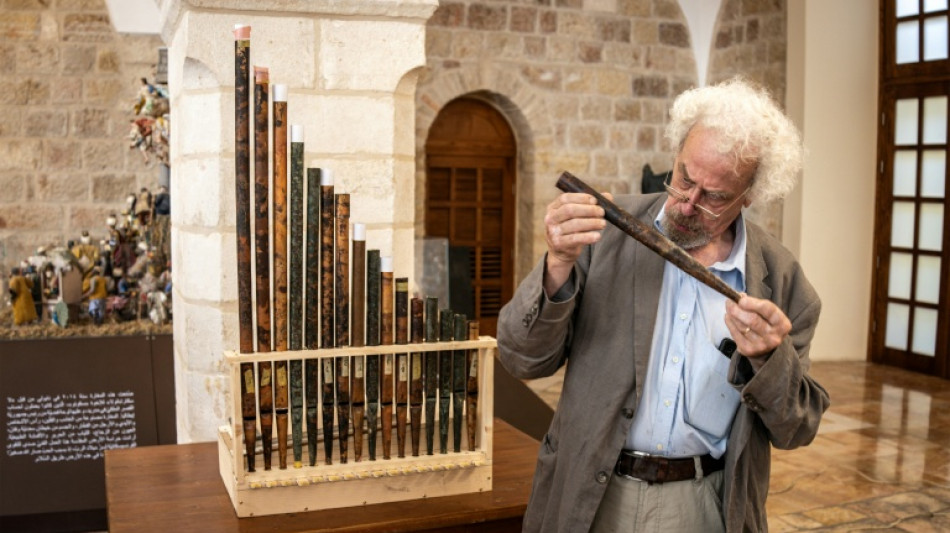
-
 Slot defends League Cup selection despite not meeting 'Liverpool standards'
Slot defends League Cup selection despite not meeting 'Liverpool standards'
-
'Poor' PSG retain Ligue 1 lead despite stalemate and Doue injury
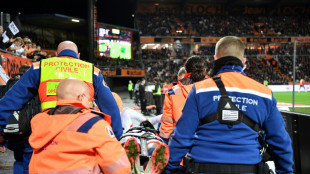
-
 Liverpool crisis mounts after League Cup exit against Palace
Liverpool crisis mounts after League Cup exit against Palace
-
Kane scores twice as Bayern set European wins record

-
 Radio Free Asia suspends operations after Trump cuts and shutdown
Radio Free Asia suspends operations after Trump cuts and shutdown
-
Meta shares sink as $16 bn US tax charge tanks profit

-
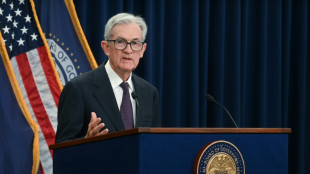 Dollar rises after Fed chair says December rate cut not a given
Dollar rises after Fed chair says December rate cut not a given
-
Google parent Alphabet posts first $100 bn quarter as AI drives growth

-
 Rob Jetten: ex-athlete setting the pace in Dutch politics
Rob Jetten: ex-athlete setting the pace in Dutch politics
-
Juve bounce back after Tudor sacking as Roma keep pace with leaders Napoli

-
 Favorite Sovereignty scratched from Breeders' Cup Classic after fever
Favorite Sovereignty scratched from Breeders' Cup Classic after fever
-
Doue injured as PSG held at Lorient in Ligue 1
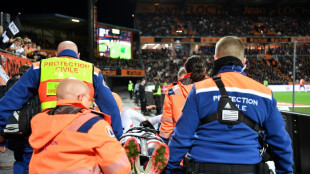
-
 Leverkusen win late in German Cup, Stuttgart progress
Leverkusen win late in German Cup, Stuttgart progress
-
Jihadist fuel blockade makes life a struggle in Mali's capital
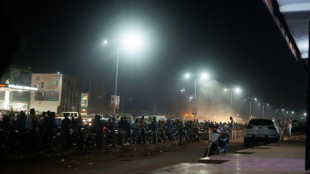
-
 Uber plans San Francisco robotaxis in Waymo challenge
Uber plans San Francisco robotaxis in Waymo challenge
-
Paramilitary chief vows united Sudan as his forces are accused of mass killings

-
 Trump, Xi to meet seeking truce in damaging trade war
Trump, Xi to meet seeking truce in damaging trade war
-
Divided US Fed backs second quarter-point rate cut of 2025

-
 'Amazing' feeling for Rees-Zammit on Wales return after NFL adventure
'Amazing' feeling for Rees-Zammit on Wales return after NFL adventure
-
'Cruel' police raids help, not hinder, Rio's criminal gangs: expert

-
 S. African president eyes better US tariff deal 'soon'
S. African president eyes better US tariff deal 'soon'
-
Sinner cruises in Paris Masters opener, Zverev keeps title defence alive

-
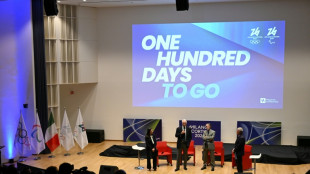 Winter Olympics - 100 days to go to 'unforgettable Games'
Winter Olympics - 100 days to go to 'unforgettable Games'
-
Kiwi Plumtree to step down as Sharks head coach

-
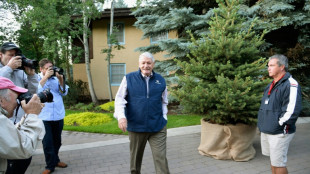 US media mogul John Malone to step down as head of business empire
US media mogul John Malone to step down as head of business empire
-
'Never been this bad': Jamaica surveys ruins in hurricane's wake

-
 Zverev survives scare to kickstart Paris Masters title defence
Zverev survives scare to kickstart Paris Masters title defence
-
Rabat to host 2026 African World Cup play-offs

-
 WHO urges Sudan ceasefire after alleged massacres in El-Fasher
WHO urges Sudan ceasefire after alleged massacres in El-Fasher
-
Under-fire UK govt deports migrant sex offender with £500

-
 AI chip giant Nvidia becomes world's first $5 trillion company
AI chip giant Nvidia becomes world's first $5 trillion company
-
Arsenal depth fuels Saka's belief in Premier League title charge

-
 Startup Character.AI to ban direct chat for minors after teen suicide
Startup Character.AI to ban direct chat for minors after teen suicide
-
132 killed in massive Rio police crackdown on gang: public defender

-
 Pedri joins growing Barcelona sickbay
Pedri joins growing Barcelona sickbay
-
Zambia and former Chelsea manager Grant part ways

-
 Russia sends teen who performed anti-war songs back to jail
Russia sends teen who performed anti-war songs back to jail
-
Caribbean reels from hurricane as homes, streets destroyed

-
 Boeing reports $5.4-bn loss on large hit from 777X aircraft delays
Boeing reports $5.4-bn loss on large hit from 777X aircraft delays
-
Real Madrid's Vinicius says sorry for Clasico substitution huff

-
 Dutch vote in snap election seen as test for Europe's far-right
Dutch vote in snap election seen as test for Europe's far-right
-
Jihadist fuel blockade makes daily life a struggle for Bamako residents
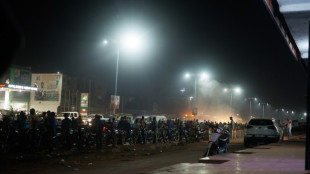
-
 De Bruyne goes under the knife for hamstring injury
De Bruyne goes under the knife for hamstring injury
-
Wolvaardt's 169 fires South Africa to 319-7 in World Cup semis

-
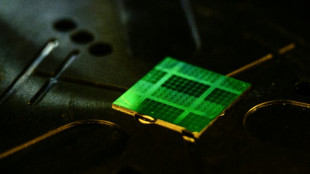 EU seeks 'urgent solutions' with China over chipmaker Nexperia
EU seeks 'urgent solutions' with China over chipmaker Nexperia
-
Paris prosecutor promises update in Louvre heist probe
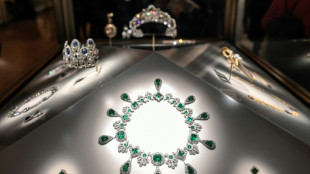
-
 Funds for climate adaptation 'lifeline' far off track: UN
Funds for climate adaptation 'lifeline' far off track: UN
-
Record Vietnam rains kill seven and flood 100,000 homes

-
 Markets extend record run as trade dominates
Markets extend record run as trade dominates
-
Sudan govt accuses RSF of attacking mosques in El-Fasher takeover


Silent for 800 years, medieval organ sings again in Jerusalem
The pipes of a medieval organ, buried for centuries and discovered near the Church of the Nativity in Bethlehem in the occupied West Bank, are once more filling a Jerusalem monastery with ancient melodies.
"This is a window into the past... we have the opportunity for the first time in modern history of listening to a medieval sound which is a thousand years old," said David Catalunya, a Spanish researcher who has worked for more than five years to bring the 11th-century instrument back to life.
"And it's not through a recreation or a hypothetical reconstruction, but it's really the original sound: the same vibration that the Crusaders heard at the Nativity Church," he told AFP.
Dating nearly as far back as the invention of the instrument itself, it was discovered in 1906 at the Biblical birthplace of Jesus Christ.
Catalunya pulls on small tabs to play the organ -- which he fondly refers to as a "miracle" -- expelling a formidable ringing from the otherwise modest wooden instrument.
Currently housed in the Monastery of Saint Saviour in Jerusalem's Old City, the instrument is set to be displayed in a museum of the Franciscan Custody of the Holy Land.
"It's like finding a living dinosaur, because it's something we knew existed but we only know from fossils, so there's very limited evidence," said Alvaro Torrente, a musicologist who participated in the restoration project.
"This is not a fossil, this is the real object and the real sound," he told AFP.
- Chance discovery -
It was discovered "almost by chance", according to Father Eugenio Alliata, a Franciscan archaeologist attached to the mission in charge of several holy sites, including the Church of the Nativity in Bethlehem.
During construction of a pilgrim hostel, a set of 222 copper pipes and a bell carillon were unearthed near the site.
It was seemingly buried with "utmost care", according to Catalunya, meaning researchers were able to reconstruct the instrument with painstaking care.
Koos van de Linde, one of the world's leading organ specialists who also consulted on the project, said that "the hope the Crusaders who buried these pieces had, that one day they would resound again, was not in vain.
"It was an immense honour to witness and participate in their resurrection," he continued.
To the experts, the instrument is unique not just for its complexity -- 18 pipes producing a single note -- or what Catalunya says is an "incredible state of preservation", but also its antiquity.
While the oldest organs studied by historians are from the 15th century, this one was built in the 11th century in France before being transported to Bethlehem by Crusaders in the 12th century, Catalunya said.
"The Christians of Europe brought to the Church of the Nativity in Bethlehem the most avant-garde musical instrument used at the time in liturgy: the organ, an instrument designed to become the emblem of sacred music," Torrente told AFP.
He hopes the discovery will spark more interest in what the research team simply calls the "Bethlehem organ", which Torrente says has not yet sung all its tunes.
T.Suter--VB
